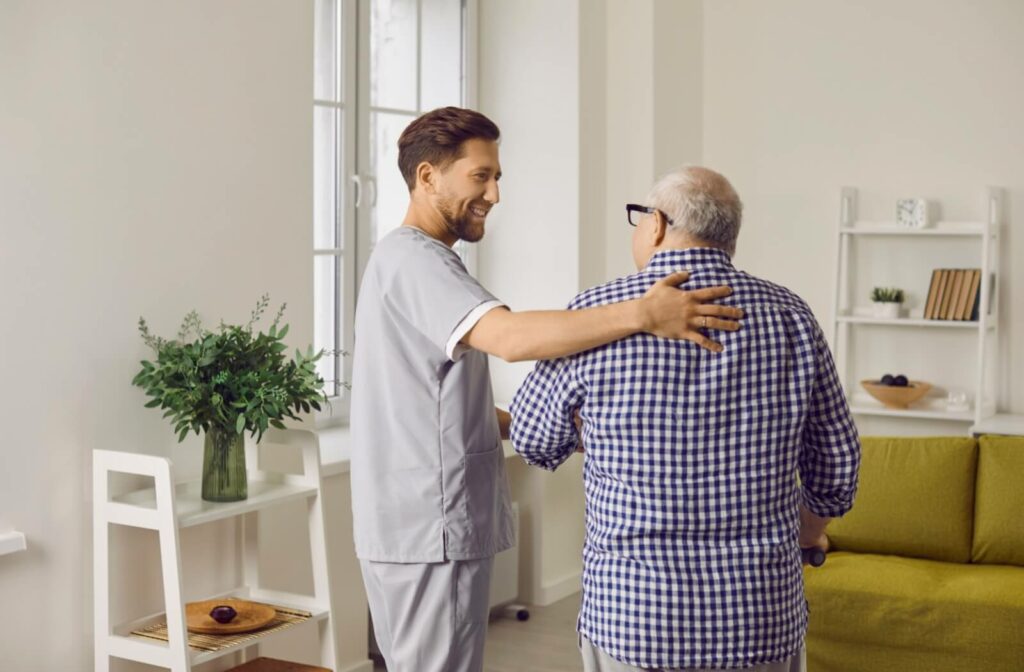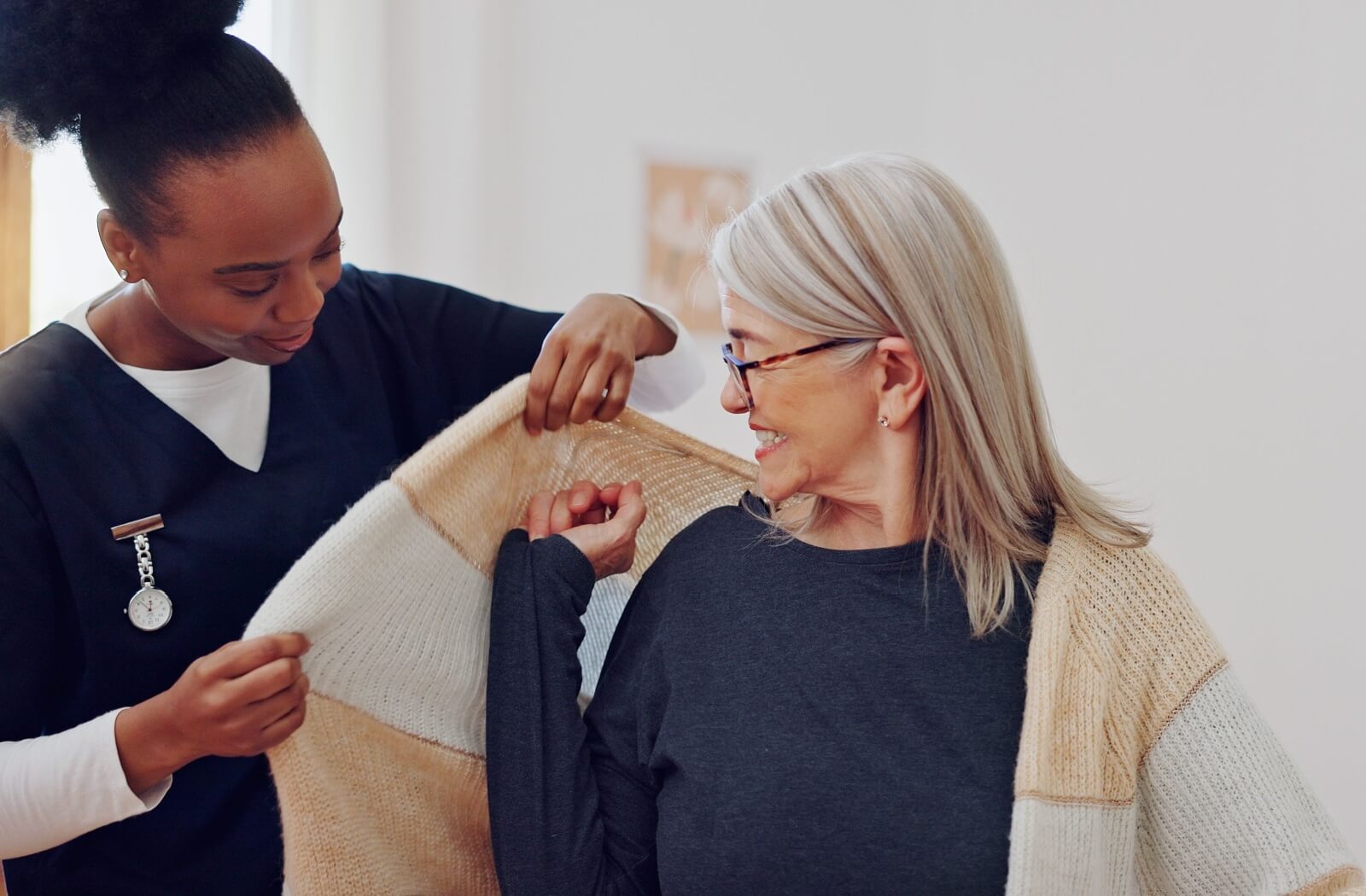Parkinson’s disease is a progressive neurological disorder that affects movement, often leading to tremors, stiffness, and balance issues. It can make daily activities challenging, but with the right adaptations, individuals with Parkinson’s can continue to enjoy a fulfilling and active life.
Exploring practical strategies to modify daily activities ensures that those living with Parkinson’s disease maintain their independence and quality of life. This is done by:
- Simplifying tasks
- Using adaptive equipment
- Maintaining a routine
- Encouraging physical activity
- Promoting mental engagement
- Staying socially connected
Community support, such as that provided by older adult living communities like Juniper Village at Aurora, also plays a vital role in offering resources and a nurturing environment.
Understanding Parkinson’s & Its Impact
Effectively adapting activities for those with Parkinson’s requires understanding the disease’s impact, including symptoms like tremors, bradykinesia, and muscle rigidity. These symptoms can make everyday tasks daunting, but with patience, creativity, and support, challenges can be managed.
Practical Tips for Adapting Activities
Simplify Tasks
Break down complex activities into smaller, more manageable steps. For instance, when dressing, lay out clothes in the order they will be put on. Using adaptive clothing, such as those with Velcro fastenings instead of buttons, can make dressing easier.
Use Adaptive Equipment
Incorporating tools like grab bars in the bathroom, non-slip mats, and utensils with larger handles can significantly enhance safety and ease of use. These adaptations help reduce strain and potential for injury.
Maintain a Routine
Establishing a consistent daily routine can provide structure and reduce anxiety. Encourage activities at the same time each day to help with memory and predictability, making the person feel more in control.
Encourage Physical Activity
Regular exercise is crucial in managing Parkinson’s symptoms. Activities such as walking, swimming, or gentle yoga can improve mobility and balance. Tailor exercises to the individual’s abilities, and consider incorporating music to make the experience more enjoyable.
Promote Mental Engagement
Keeping the mind active is just as important as physical activity. Puzzles, reading, and engaging in hobbies can help maintain cognitive function. Encourage participation in activities that the individual enjoys to boost their mood and motivation.
Stay Socially Connected
Isolation can exacerbate symptoms of Parkinson’s. Encourage participation in social activities, whether it’s a book club or a community event. Regular interaction with friends and family can provide emotional support and improve mental well-being.

The Role of Caregivers & Family Members
Caregivers and family members play an important role in supporting individuals with Parkinson’s. Here’s how they can help:
- Be Patient and Empathetic: Understand that tasks may take longer and require more effort. Offer help when needed, but also encourage independence.
- Educate Yourself: Learn about Parkinson’s to better understand its challenges and how to manage them. This knowledge can empower caregivers to provide better support.
- Communicate Openly: Maintain open lines of communication to understand the needs and preferences of the person with Parkinson’s. This mutual understanding can make adaptations more effective.
Community Support: The Juniper Communities Approach
Older adult living communities like Juniper Communities offer invaluable support to individuals with Parkinson’s and their families. They provide a nurturing environment where residents can thrive despite their challenges:
- Comprehensive Care: Juniper Communities offer specialized programs and care tailored to the needs of those with Parkinson’s. From physical therapy to cognitive exercises, they ensure residents receive the necessary support.
- Social Engagement: These communities foster social connections through group activities and events, reducing feelings of isolation and promoting a sense of belonging.
- Resource Availability: Access to resources such as adaptive equipment, wellness programs, and professional staff ensures that residents have everything they need to live comfortably and safely.
- Emotional Support: Juniper Communities emphasize emotional well-being, offering support groups and counseling services to help residents and their families navigate the challenges of Parkinson’s.
Thriving with Parkinson’s Through Adaptation & Support
Adapting activities for individuals with Parkinson’s is not just about making tasks easier; it’s about enhancing their quality of life and making sure they can continue to engage in the activities they love.
With practical adaptations, caregiver support, and the resources provided by senior living communities like Juniper Village at Louisville, individuals with Parkinson’s can live fulfilling, active lives. Remember, the journey with Parkinson’s is unique for everyone, and creating a compassionate, supportive environment is key to making everyday living better.
Take the first step towards enhancing the lives of those with Parkinson’s by putting these practical strategies into action today. Explore community resources like those at Juniper to find the support and tools needed for a fulfilling life. Share this blog with caregivers, families, and friends to spread awareness and empower others with the knowledge to make a difference. Reach out to us today to join our communities!







